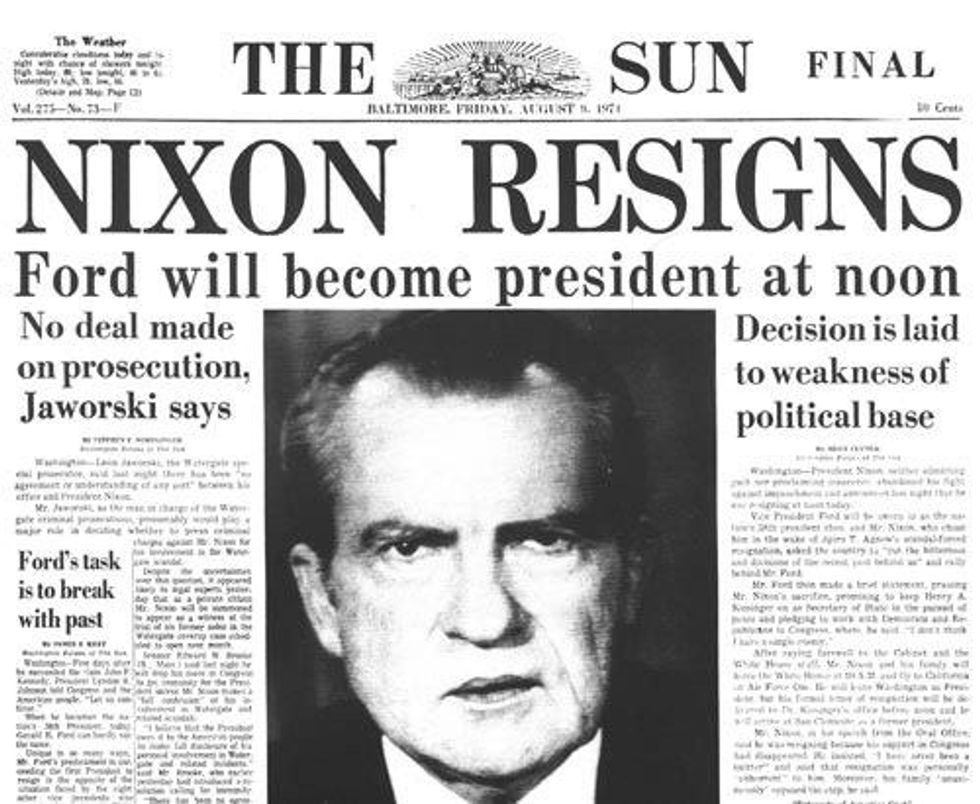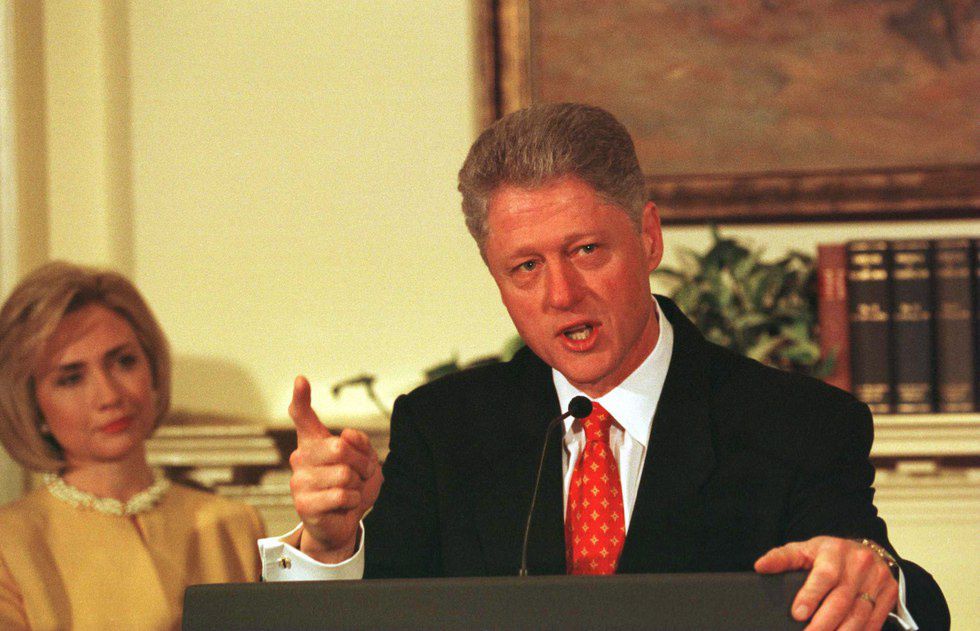It's not something to ignore, and it's not an overreaction. Bernie Sanders may have claimed that the American people are sick of Clinton's e-mails, but the law is not enforced by public opinion and the law will decide Clinton's fate.
History is not on her side.
The current debate is not so much about whether the law was broken but rather about who broke it in Clinton's administration. Even if it was just a mistake by her aides, this could mean trouble for her. Such a scenario played out in 2002 in my own college's home city of Providence, Rhode Island.
To further underscore the seriousness of this debacle for Clinton, we can just look at the last president who mishandled recordings of his communications, erasing a mere 18 minutes of recorded dialogue.
Even if she managed to somehow escape conviction, the trouble she would face as a result of potential controversy could be maddening for the Democratic Party. Let's not forget the last president who was publicly reprimanded for lying under oath.
Hey, look, Clinton was there for that scandal! Surely she wouldn't try the same thing!
The technicality.
Clinton's e-mails aren't just a matter of putting the wrong file in the wrong place. For Clinton's private server to carry classified information, and it was classified, she would have had to take a number of questionable paths. Andrew McCarthy, a former assistant U.S. attorney for the Southern District of New York, described the system and the situation the following way:
In the government, classified documents are maintained on separate, super-highly secured systems. Yes, if security gets lax or you have a determined Ed Snowden type with sufficient expertise, the protections can be defeated. But in general, Mrs. Clinton would not have been able to access classified documents even from a .gov account, much less from her private account — she’d need to use the classified system. In fact, many government officials with security clearances read “hard copies” of classified documents in facilities designed for that purpose rather than accessing them on computers...It is not enough for a government official with a top-secret clearance to refrain from storing classified documents on private e-mail; the official is also forbidden to discuss the information contained in those documents.
With this in mind, the fact that classified information was found on her server indicates some action more deliberate than merely avoiding using another device. It required intentional movement off of a secure government system.
How deep does the rabbit hole go?
For the information Clinton had to reach her server, it had to be moved in one of a number of ways. She could have read it and discussed it by typing what she remembered into a private email (which is illegal). An aide could have done the same thing (which is also illegal, and would require sharing secret passwords to top-secret information). Documents could have been removed manually or photographed (both of which are also illegal). Unless she can figure out an answer to how classified information got to a server that was explored by an imprisoned Romanian hacker, and why she was okay with it, she is in legal trouble.
She will also have to answer to speculation. Why did she keep her e-mails on a server where the government cannot see her communications? Does this explain why foreign governments, including Saudi Arabia, Morocco and Oman, gave millions to the Clinton Foundation? Could there be a link between this and the arms deals between such nations, even in periods of instability? Could these deals have included chemical arms to unstable regimes? Could these arms have, perhaps, changed hands and reappeared later? What about her alleged role in other catastrophes, one of which has been popularized in a movie and was the source of her e-mail troubles in the first place? Could they have resulted in the deaths of American officials?
These articles, I cannot emphasize more, have been written without an indictment of Hillary Clinton. Imagine how outlandish and terrifying charges against her would become, and how much Democrats will have to defend, if she wins the nomination? There is even a Wikipedia article with seven chapters about the madness that is Clinton's e-mail server.
As primaries continue, Democrats will have to make a dangerous choice: is risking this dialogue surrounding your presidential nominee worth voting down the Democratic Socialist who fits perfectly into a '70s disco hit? The choice, for Democrats, may very well be whether to feel the Bern or get burned.













 Photo by
Photo by 








